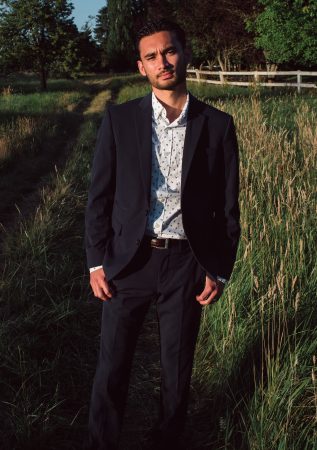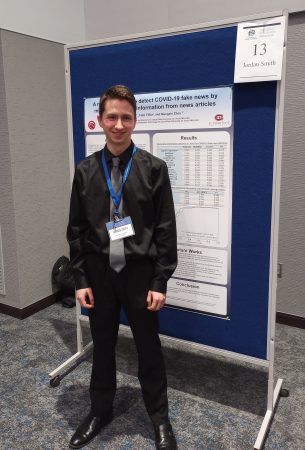In early March, two St. Cloud State students from the College of Science and Engineering (COSE) had their research article published in an international, scientific, peer-reviewed journal.
Software Engineering student Faizi Fifita and Data Science and Mathematics student Jordan Smith had their research article titled “Machine Learning-Based Identifications of COVID-19 Fake News Using Biomedical Information Extraction”, published in Big Data and Cognitive Computing. This research article belongs to the journal’s collection: Machine Learning and Artificial Intelligence for Health Applications on Social Networks.
Fifita and Smith’s research article highlights the spread of fake news related to the COVID-19 pandemic, which was labeled as an “infodemic” by the World Health Organization (WHO). This fake news can be blamed for numerous hate crimes, vaccine hesitancy and psychological disorders. The method they worked on was computer-based detection models whose algorithms allow them to pick out fake news.
Typically, these models compare various news articles to a data set of accurate news articles to compare the tone, source, and writing style of the articles. This process helps weed out the fake from the true. Fifita and Smith built on this method by leveraging a data set “of 1,164 COVID-19-related news articles collected from various platforms such as Twitter, Facebook, The New York Times, Harvard Health Publishing, WHO, etc.”.
They applied natural language processing algorithms to extract biomedical information from news articles. They then constructed machine-understandable features based on this information. By adding these features to several machine learning models, they tested the accuracy of the models in detecting fake news. It was found that the addition of biomedical information led to an increase in the accuracy of the models in detecting fake news.
This represents the first study to incorporate biomedical information extraction with machine learning-based COVID-19 fake news detections. The results of Fifita and Smith’s research article provides a new angle for future fake news detection models. In a time where fake news is running rampant, the work of these students has the potential to help put news back on track.
This research was funded by the National Science Foundation under grant No. 1742517 and SCSU early career grant.
Faculty member Dr. Mengshi Zhou was the supervising mentor for the project.


